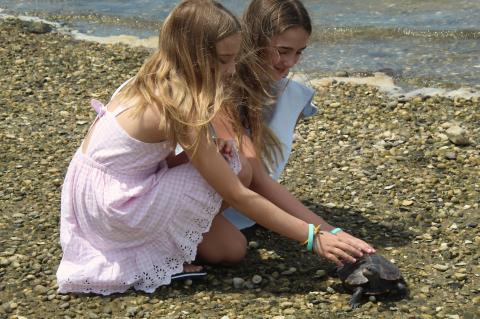When young Ella and Gracie Wobensmith found the diamondback turtle on a Noyack Bay beach four years ago it, had serious wounds to its shell and a punctured lung. It was rehabilitated at a turtle rescue center, and this week the girls had a chance to help release it back into the wild.
Nature
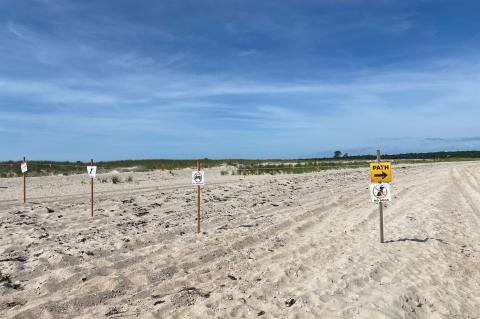 Piping Plover Nest Is Destroyed
Piping Plover Nest Is DestroyedPiping plover posts and fencing at Maidstone Park in Springs were ripped out of the ground on June 15, perhaps resulting in the deaths of two plover chicks that had recently hatched there.
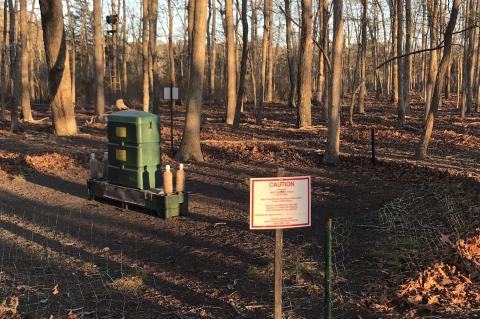 Targeting Ticks by Killing Them on Their Hosts
Targeting Ticks by Killing Them on Their HostsAt the end of March, in an ambitious effort to eradicate ticks on North Haven, the village relaunched its campaign to install "four-poster" feeding stations for deer. The stations bait deer with corn. While they feed, a tickicide is applied directly to their necks.
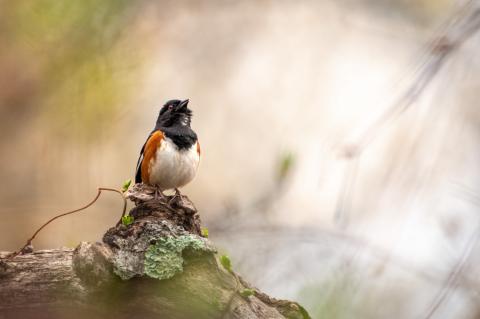 On the Wing: A Tempest of Towhees in a Teapot
On the Wing: A Tempest of Towhees in a TeapotThe eastern towhee breeds in Montauk, and if you go to Oyster Pond this weekend you can hear them calling and singing everywhere.
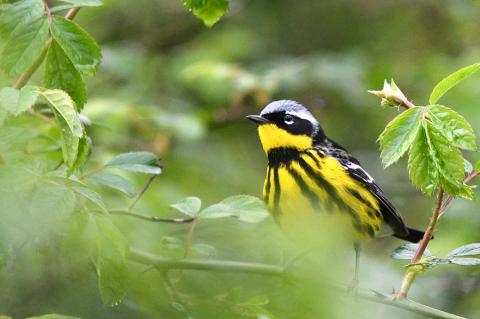 On the Wing: Millions of Birds on the Move
On the Wing: Millions of Birds on the MoveOver the next two weeks, spring bird migration will peak. Hundreds of millions of birds will fly up the country, largely south to north, in sync with blooming trees, flowers, and insect hatches. Many are attempting to reach the green attic of North America, the boreal forest of Canada, where they will breed and raise their young before reversing course in the autumn.
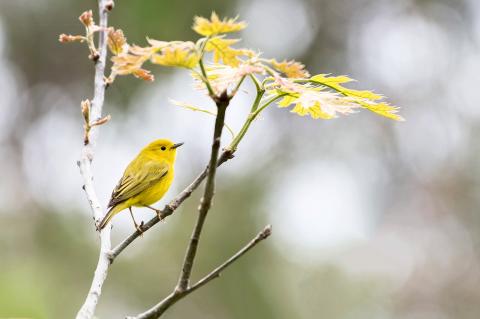 On the Wing: Think Like a Bird in Your Backyard
On the Wing: Think Like a Bird in Your BackyardTo make your backyard bird-friendly, you'll need to think like a bird when making landscaping decisions.
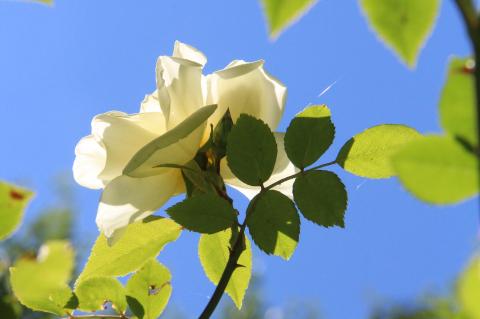 Stop and Smell the Roses
Stop and Smell the RosesIn the Northeastern United States, at least, these blossoms — whether red, pink, peach, yellow, white, or some combination of all — are at peak perfection starting in late May through June. As you stroll about, drive around town, or even take the train, here are some South Fork spots where you can find this favorite flower.
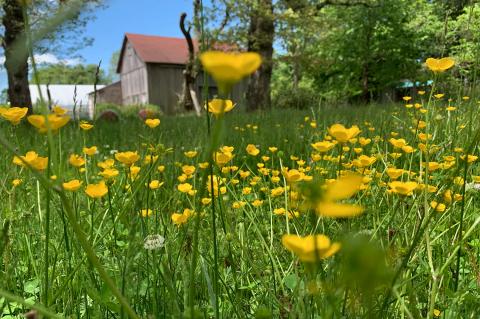 Abuzz About Pollinator Pathways
Abuzz About Pollinator PathwaysWhat are pollinator gardens and why are so many people talking about them right now? The idea, according to the organizers of the Pollinator Pathway movement, is to manage backyards without pesticides and with native plantings so they can connect with parks and preserves, creating a sort of bird and insect “refuge corridor,” an "archipelago" of habitats.
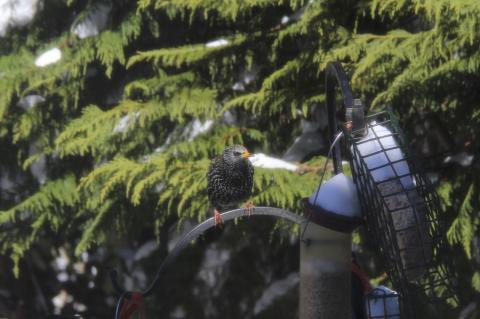 Great Backyard Bird Count Is This Weekend
Great Backyard Bird Count Is This WeekendThis weekend is the 25th anniversary of the Great Backyard Bird Count. To participate, you spend a minimum of 15 minutes counting birds, and afterward report what you see to the number-cracking scientists at the Cornell Lab of Ornithology.
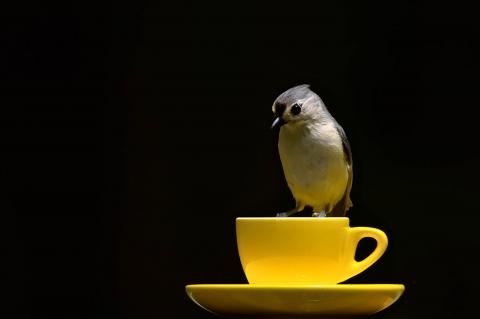 On the Wing: It Starts With the Spark Bird
On the Wing: It Starts With the Spark BirdIn a new column about birds, The Star's Christopher Gangemi discusses the "spark bird," that bird that first makes you notice birds in general, sparking a deeper curiosity about the many birds around you. His, in December of 2001, was the tufted titmouse.
When things greened up early this spring thanks to warmer-than-usual temperatures around here, humans weren't the only ones who noticed. Honeybees are thriving on the East End.
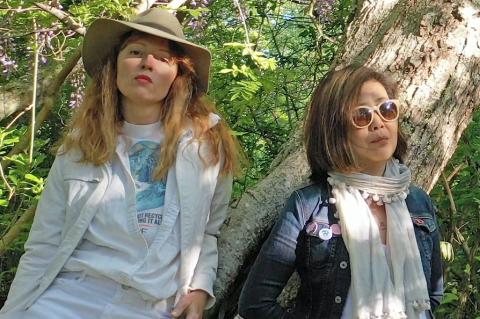 Paul McCartney Endorses Video for Wildlife
Paul McCartney Endorses Video for WildlifeA musical project that came to life last summer will make its broadcast debut this morning, days after coming to the attention of the song’s composer, who happens to have been in the Beatles.
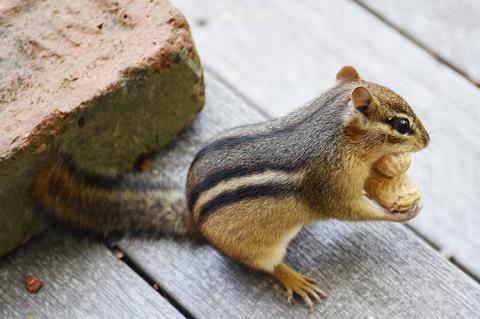 Nature Notes: The Cutest of All
Nature Notes: The Cutest of AllHalfway through March, chipmunks are up for good, it would seem. I see ours almost every morning running about, looking hale and sassy.
Monday was the warmest day since November. It reached 60 degrees in Noyac and thoughts of winter evaporated into thoughts of spring and the turning of the earth from dull gray to bright green.
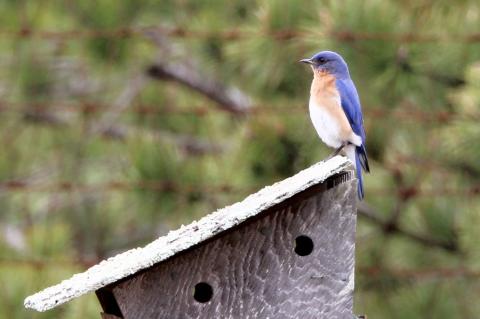 Nature Notes: True Blue
Nature Notes: True BlueThe eastern bluebird, the New York State bird, is the only North American thrush that doesn’t build a typical nest in a tree or bush during breeding season. It lays its eggs in a hole in a tree or a nonliving substitute, a bird box.
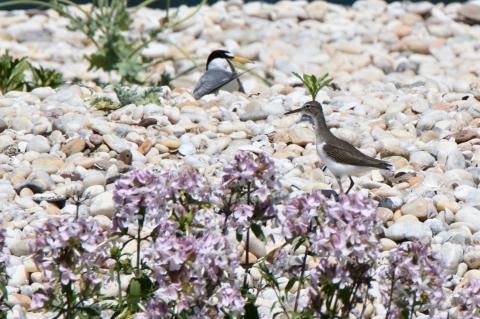 Nature Notes: For the Birds
Nature Notes: For the BirdsFor the last 81 and 67 years, annual end-of-the-year, or Christmas, bird counts have taken place without fail in two nearby areas, Quogue to Water Mill, and Central Suffolk. The tradition lives on and is increasingly revealing.
If there were no sun there would be stars, but no East Hampton Star. The latest calculations by astronomers, astrophysicists, and mathematicians is that the sun is 4.61 billion years old and has another five billion years to go before all of the hydrogen gas capacity is used up.
 Nature Notes: To Kill or Not to Kill?
Nature Notes: To Kill or Not to Kill?The New York State Department of Environmental Conservation is allowing for a deer hunt on the Fire Island National Seashore. They say too many deer, too many problems.
There is another Long Island bird count that follows on the heels of the annual longstanding Christmas count. It’s the winter waterfowl count that happens at about this time every year.
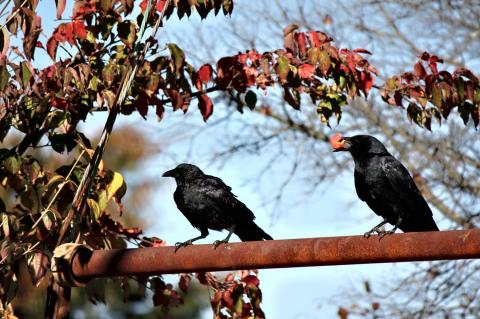 Nature Notes: Birds of a Feather
Nature Notes: Birds of a FeatherThe theory of evolution is still intriguing. It is “survival of the fittest” in one sense, but not totally so. And it’s going on all around us today.
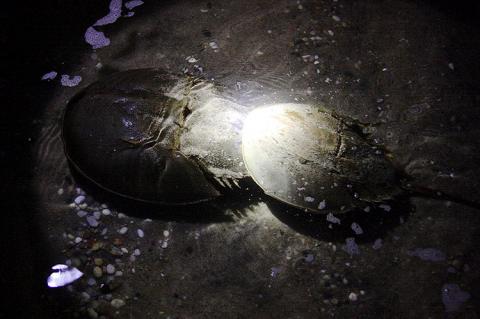 Nature Notes: Mass Extinction, or Not
Nature Notes: Mass Extinction, or NotFinally, world governments began to give a damn! Vanishing species had a friend. In the United States, the Fish and Wildlife Service led the way. You could no longer shoot hawks, eagles, and other birds that were not game species. Big fines became the rule of the day.
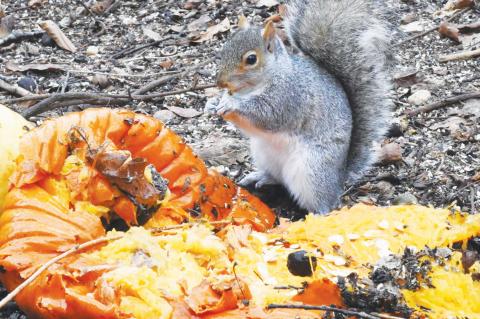 Nature Notes: Smart, Quick, Amusing
Nature Notes: Smart, Quick, AmusingSquirrels are the closest thing to monkeys that I can think of in our area. Not only are they consummate climbers but they can also jump from branch to branch and tree to tree, using their furry tails as ailerons to guide them as they fly through the air.
 Nature Notes: The Downdrift Beaches
Nature Notes: The Downdrift BeachesThe East End of Long Island came into being more than 10,000 years ago. Up until the present time the North and South Forks have been wearing away, first by the melting of the thick sheets of ice covering them — the South Fork first, then the North Fork as the glaciers melted away and retreated.
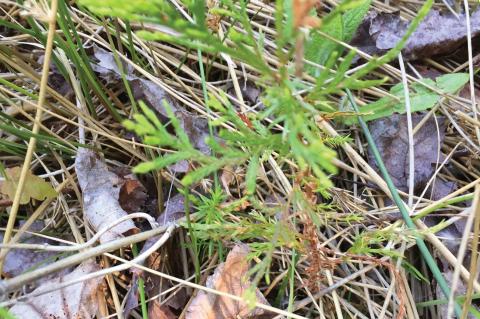 Nature Notes: Wake Up!
Nature Notes: Wake Up!Southampton Town has more than 60 freshwater ponds. Most of these ponds are contaminated to this or that degree, but the most contaminated are given a label by the New York State Department of Environmental Conservation that speaks to their fragility.
All of the winter bird, or Christmas, counts will be completed by the last days of December. Locally, the Montauk Count, which took place on Saturday, is the longest running on the South Fork.
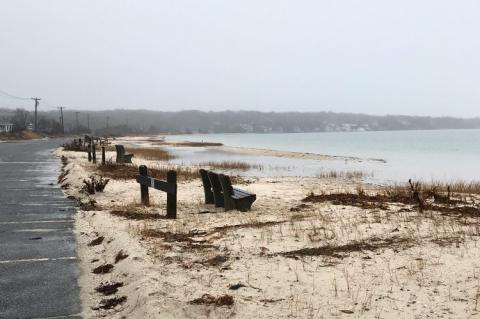 Nature Notes: View From Long Beach
Nature Notes: View From Long BeachLast Thursday we were visited by a full moon. It was mostly hidden by clouds, but just because the seas can’t see the moon dosen’t mean they don’t feel its tug.
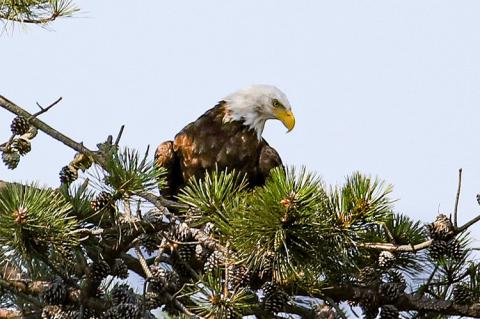 Nature Notes: The Return of the Eagle
Nature Notes: The Return of the EagleAccording to “Bull’s Birds of New York State,” until recently bald eagles had last nested in the Long Island area on Gardiner’s Island in 1936. They almost became extinct in the lower 48 shortly thereafter.
I hope you all read last week’s letters to The Star. The one that stimulated me the most was the one from Brad Loewen. It brought to mind a recurring question I’ve had: We are spending a lot of money trying to make the estuary more productive, but is it working? Are all of these efforts to “save the bays” by seeding more and more oysters going to improve overall aquatic productivity? The late Stuart Vorpahl frequently reminded us that productivity can be cyclical. He was a keen observer of the ups and downs in population of this and that fishery. When fish or shellfish were wanting, he turned to welding — most of our local fishermen know more ways than one to make a living.
I have to admit, without Google I’d be a mental dwarf. I don’t use Facebook, don’t Tweet, don’t follow any blogs. I don’t mind jettisoning 75 to 100 political and other emails that I receive; I feel good after I flush the trash and spam down the drain.
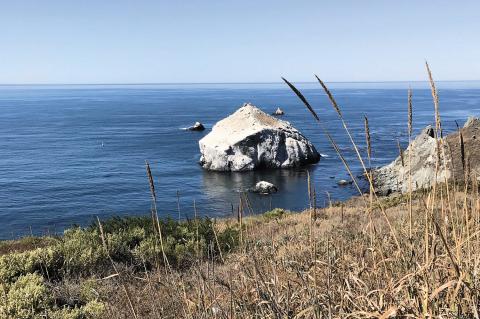 Nature Notes: Glacial Relics
Nature Notes: Glacial RelicsWhile driving up the California coast on U.S. Route 1, particularly so from Morrow Bay on up to Monterey, Julie and I spotted several large coastal boulders, some white, some dark, some with birds, a few with sea lions, but almost all pyramid-shaped. We suspect that at least some of the whiteness was attributed to uric acid depositions from birds, or guano, as many of those white rocks had cormorants perched on them.

